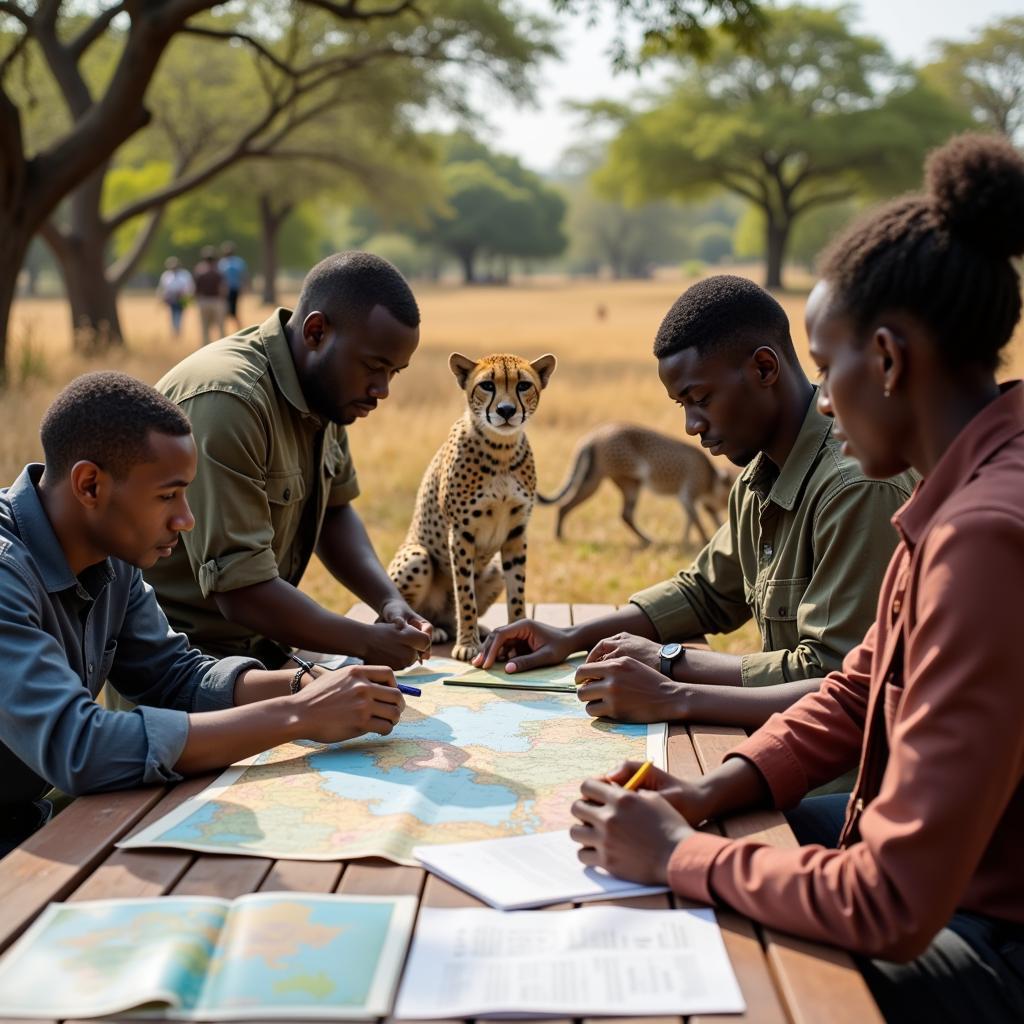Exploring the African Army Pre-WWI: Structure, Roles, and Colonial Influence
The African army pre-WWI was a complex and diverse landscape shaped by both internal dynamics and the pervasive influence of European colonialism. This article delves into the structures, roles, and challenges faced by African military forces before the outbreak of the First World War. We’ll explore how these forces were impacted by colonization, and how they varied across different regions of the continent.
Many pre-colonial African societies possessed established military traditions. These ranged from highly organized standing armies, such as those of the Zulu Kingdom, to more fluid warrior groups that were mobilized in times of conflict. These forces played crucial roles in maintaining internal order, defending territories, and projecting power. After the Berlin Conference of 1884-85, the Scramble for Africa intensified, and the landscape of African armies underwent a dramatic transformation.
The Impact of Colonialism on African Military Structures
European colonial powers sought to control and utilize existing African military structures for their own purposes. This often involved incorporating local troops into colonial armies, creating auxiliary forces, or disbanding traditional military organizations altogether. The introduction of European weaponry and military tactics further altered the nature of warfare in Africa. For example, the British employed West African Frontier Force troops extensively in their campaigns across the region. This highlighted the strategic importance placed on African soldiers by European powers. These colonial interventions significantly impacted the autonomy and traditional roles of African armies. Even after gaining independence decades later, some African nations struggled to reconcile the legacy of colonial military influence.
After this period, many Africans joined the military, including the African American aviators, and this had an impact on the perception of Africans in the military.
The Diverse Roles of African Armies Pre-WWI
African armies pre-WWI played various roles depending on the specific context. In some cases, they served as the primary instruments of colonial power, participating in expeditions to suppress resistance or expand territorial control. In other instances, African forces retained a degree of autonomy, continuing to fulfill traditional functions such as maintaining internal security and resolving local disputes. Understanding these diverse roles is crucial for comprehending the complex interplay between indigenous agency and colonial authority. The Askari troops of German East Africa are a notable example of an African army serving under colonial command.
Regional Variations in African Military Organization
The organization and structure of African armies pre-WWI varied significantly across different regions of the continent. In some areas, centralized kingdoms maintained standing armies with sophisticated command structures and specialized units. In others, decentralized societies relied on more informal military organizations that were mobilized as needed. These regional variations reflect the diversity of political and social structures across pre-colonial Africa. For example, the highly organized Zulu Impis differed greatly from the warrior societies of the Maasai. Understanding these differences is key to gaining a nuanced understanding of African military history. There are fascinating parallels to be drawn between the experiences of African American soldiers in the Civil War and those of African soldiers serving in pre-WWI armies.
african american soldiers in the civil war
“Understanding the complexities of African military history requires acknowledging the diversity of pre-colonial traditions, the transformative impact of colonialism, and the various roles played by African forces in this era,” notes Dr. Aboubakar Nsibambi, Professor of African History at the University of Dar es Salaam.
Navigating the Challenges: Resistance and Adaptation
African armies pre-WWI faced numerous challenges, including the imposition of colonial rule, the introduction of new military technologies, and the disruption of traditional social structures. Many African societies resisted colonial encroachment through armed conflict, while others adapted to the changing circumstances by incorporating new military practices and strategies. The Maji Maji Rebellion in German East Africa is a prime example of African resistance against colonial military power.
“The stories of African soldiers pre-WWI are often overshadowed by the narrative of colonial conquest,” states Dr. Amina Omar, researcher at the National Museums of Kenya. “It’s important to remember the resilience and agency of these individuals and communities in the face of immense challenges.” African American pilots in WWII also faced immense challenges in their own right.
In conclusion, the African army pre-WWI was a complex and multifaceted entity shaped by a convergence of internal and external factors. Understanding the structures, roles, and challenges faced by these forces is essential for gaining a comprehensive understanding of African history and the lasting impact of colonialism. The African army pre-WWI provides a rich and often overlooked area of study, revealing the resilience and agency of African societies in a period of profound transformation.
FAQ
- What were the main roles of African armies before WWI?
Maintaining internal order, defending territories, and projecting power. - How did colonialism affect African armies?
Colonialism led to the incorporation of African troops into colonial armies, the introduction of European weaponry and tactics, and the disruption of traditional military structures. - Did all African societies have standing armies pre-WWI?
No, military organization varied greatly across the continent, from standing armies to more fluid warrior groups. - What were some examples of African resistance against colonial military power?
The Maji Maji Rebellion in German East Africa is a prime example. - Where can I find more information about African military history?
Academic journals, historical archives, and museums dedicated to African history offer valuable resources. - What was the significance of the Askari troops?
They represent a significant example of African soldiers serving under colonial command, often in key roles. - How did African military traditions differ from European ones?
African military traditions often emphasized close-combat tactics, warrior ethos, and the integration of spiritual beliefs.
Further Questions
-
How did the experiences of African soldiers in pre-WWI armies compare to those of African American soldiers in World War I?
african american soldiers in world war 1 -
What role did African women play in pre-WWI military contexts?
For further assistance, please contact us: Phone: +255768904061, Email: kaka.mag@gmail.com, or visit us at Mbarali DC Mawindi, Kangaga, Tanzania. We have a 24/7 customer support team.


